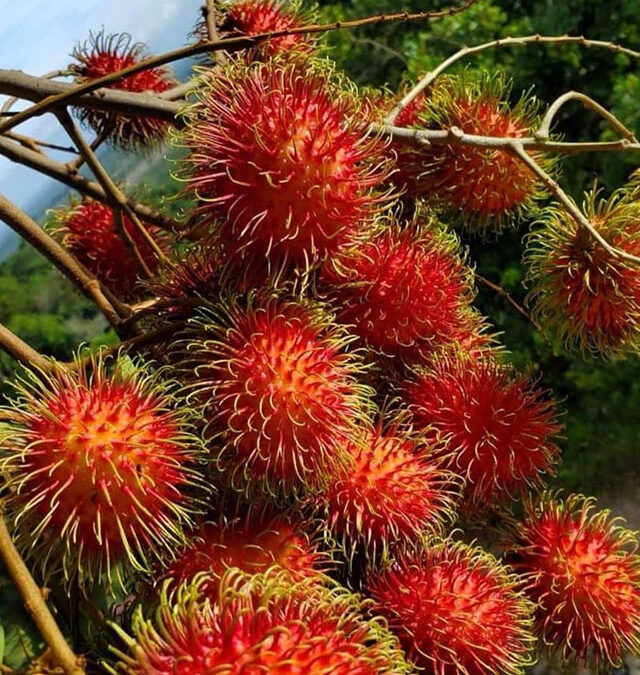Passion fruit, also known as Passiflora edulis, is a tropical fruit native to South America. It is renowned for its unique flavor and vibrant appearance. The fruit has a round or oval shape, with thick, wrinkled purple or yellow skin. Inside, the fruit contains a jelly-like pulp filled with numerous small seeds. Passion fruit is cherished for its distinct sweet-tart taste and is consumed both fresh and used as a flavoring in various culinary creations such as desserts, beverages, and sauces.
Here are 10 fun facts related to the health benefits of passion fruit:
- Passion fruit is a nutrient powerhouse, rich in vitamins A and C, both essential for maintaining a strong immune system.
- The fruit is an excellent source of dietary fiber, aiding in digestion and promoting a healthy gut.
- Passion fruit contains antioxidants that help protect against oxidative stress and reduce the risk of chronic diseases.
- It is low in calories and fat, making it a guilt-free addition to a balanced diet.
- The fruit is a good source of potassium, an electrolyte crucial for maintaining proper heart function and regulating blood pressure.
- Passion fruit is rich in flavonoids, which have been linked to potential anticancer effects.
- The fruit’s high vitamin A content promotes healthy vision and supports overall eye health.
- Passion fruit pulp is known to have calming properties and is often used as a natural remedy for insomnia and anxiety.
- The fruit contains iron, aiding in the production of red blood cells and preventing anemia.
- Passion fruit’s fiber content helps regulate blood sugar levels, making it a suitable choice for individuals with diabetes.
Now, let’s explore 5 random fun facts about passion fruit:
- The name “passion fruit” originates from the Spanish explorers who believed parts of the flower resembled the crucifixion of Christ, associating it with the Passion of Christ.
- Passion fruit vines are vigorous climbers and can grow up to 20 feet in a single year.
- The fruit is a favorite among hummingbirds, who are attracted to the vibrant flowers and play a vital role in their pollination.
- Passion fruit is often used as an ingredient in exotic cocktails and tropical beverages due to its intense flavor.
- The passion fruit plant is not only cultivated for its delicious fruit but also valued for its ornamental qualities, with its intricate, exotic flowers adorning gardens and landscapes.
Passion fruit offers a delightful sensory experience, along with numerous health benefits, making it a popular choice for both culinary and wellness purposes.


